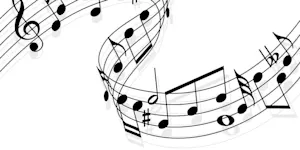What Makes This Word Tick
The word "chasten" carries with it a sense of correction and discipline, often paired with a gentle but firm hand. To chasten someone is to make them more humble or restrained, suggesting an experience that teaches a valuable lesson through mild adversity.
If Chasten Were a Person…
Imagine Chasten as an elegant schoolteacher with a perfectly polished demeanor, gently correcting misguided behavior with wisdom and patience. They hold the power to transform a mistake into a learning moment, offering growth through mild rebuke.
How This Word Has Changed Over Time
"Chasten" has retained its core meaning through the ages, but its application has evolved. Once heavily rooted in religious and moral contexts, it's now used more broadly in secular discussions, especially in personal development and character shaping narratives.
Old Sayings and Proverbs That Use Chasten
Though not appearing in many ancient proverbs, "chasten" is closely knit with the idea that "pain is the best teacher," embodying the belief that hardship often leads to personal betterment.
Surprising Facts About Chasten
"Chasten" shares its lineage with "chastise," but it lacks the harsher overtones. While "chastise" reminds one of harsh reprimands, "chasten" implies a more thoughtful and transformative kind of discipline.
Out and About With This Word
You'll often find "chasten" in discussions about lessons learned from failures or setbacks. It's a favorite among self-help and motivational authors when illustrating how challenges contribute to personal growth.
Pop Culture Moments Where Chasten Was Used
In various TV shows and movies, characters who face humbling experiences, often lead to moments of introspection and growth, capturing the essence of being chastened. Whether through failure or a tough-love pep talk, chasten moments shape memorable arcs.
The Word in Literature
Authors in classical literature, like Charles Dickens, might not have used "chasten" explicitly in every work, but the concept runs deeply through stories of redemption and transformation, often where a character finds humility after a fall.
Moments in History with Chasten
The Great Depression was one of those significant times when the American spirit was chastened by economic hardship, teaching lessons in resilience and community. Leaders reflected on mistakes and emerged with a stronger, albeit humbled, approach to the future.
This Word Around the World
While "chasten" doesn’t have a direct one-for-one translation in many languages, its concept radiates globally. In Japanese, the idea of "ganbaru" embodies perseverance and discipline, reflecting a similar sentiment without the direct wording.
Where Does It Come From?
The origins of "chasten" trace back to Latin via Old French, with "castigare" meaning to punish or reproach, and later evolving through various adaptations to marry the idea of correction with a dose of compassion.
How People Misuse This Word
There's a tendency to equate "chasten" directly with "punish," losing its nuance of enlightenment through correction. A chasten moment is as much about learning as it is about acknowledging a misstep.
Words It’s Often Confused With
Chastise: Much harsher, often implying strong criticism or punishment.
Chase: Completely unrelated, but phonetically similar, involving pursuit.
Chaste: A term rooted in purity, not related to correction or discipline.
Additional Synonyms and Antonyms
Synonyms include "discipline," "humble," and "refine," while antonyms are "indulge," "praise," and "spoil."
Want to Try It Out in a Sentence?
"After her initial idea was met with criticism, she was chastened but took the feedback to heart, leading to a stronger presentation the next time."
















